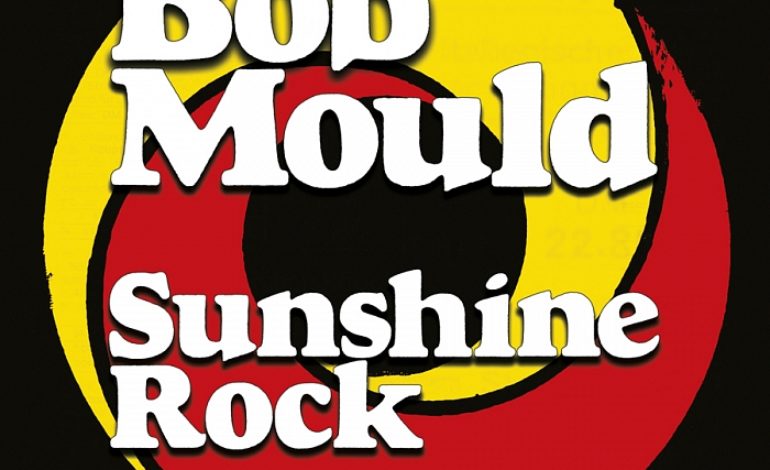

Never Too Old
Bob Mould has returned with Sunshine Rock, a hard-hitting 36-minute ride that’s over in the blink of an eye. The record captures the things that make the former Husker Du and Sugar frontman great, and in this way, it succeeds despite some prominent flaws.
The album opens on its titular–and possibly best–track. It’s a blazing upbeat track carried by Mould’s iconic voice and simple but appealing guitar work with just the right amount of crunch to give the chords that indie rock flavor. Mould pours his heart into this performance, and he still sounds fantastic. From a mixing perspective, however, the levels are a bit off. Mould’s voice often gets lost behind the instrumentation, and the guitar, in particular, is too loud.
“What Do You Want Me To Do” and “Sunny Love Song” build on the energy of “Sunshine Rock.” The former has a modern hard-rock progression reminiscent of a Foo Fighters song. (Ironically, Mould actually featured on a Foo Fighters song, “Dear Rosemary,” in 2011.) The latter is characterized by its happy-go-lucky sentiment, a tone Mould hits for much of the record. “Write a Sunny Love Song every day,” Mould tells the listener. Against the backdrop of an indie music scene that is arguably sadder than ever, Bob Mould is just doing him.
“The Final Years” is the first real departure from the album’s hard-rock feel, as this song dials it back, cuts the tempo and rolls off the distortion to put Mould’s voice front and center. It’s not his best vocal performance, but the mix is noticeably better here. It’s hard not to hear this song as Mould looking back on his life and career. “What do we cherish in the final years?” he sings near the track’s conclusion.
“I Fought” takes Mould back to his punk roots with a great opening riff and a ballsy, distorted punk progression. He’s back to his old tricks, as this is still what he does best vocally. Intense lyricism matches the instrumentation and Mould’s performance–“I fought for you / You’re in my memory / You’re in my history.”
“Sin King” is one of the album’s most memorable tracks, as its thinly-veiled politicism will surely make an impact no matter what side of the partisan divide listeners fall on. “You’re sinking our democracy,” Mould says, though he never clearly addresses his target. Later he takes on media and misinformation: “I wish the facts were crystal clear / but in this light they disappear.” “Sin King” is Bob Mould’s ballad to America, and the forces acting upon it. The track is also supported by more noteworthy guitar work, but the mix still feels off as the vocals often become washed out.
“Camp Sunshine” is possibly the record’s ugliest downturn. It’s Mould waxing nostalgic about making music with his friends, but lyrically the song is a mess. “Camp Sunshine” sounds like the name of a children’s song, and the result is surprisingly similar. His romantic metaphor of “camp”–a weak literary device carried throughout the song–plays less like the beautiful joyous place in Mould’s mind and more like Scatman John’s “Scatworld.” The lyrics also throw any subtlety, mystery and room for interpretation to the wind, to the point of bludgeoning the listener with life lessons. “Always treat your friends with love and respect,” sings Mould. He’s also quick to remind us to “always say thank you.”
Fortunately, Mould gets back on track with the closer, “Western Sunset.” It’s just a happy, feel-good track that will leave listeners smiling. Although it falls short in some respects, it seems as if this is the overarching goal of Sunshine Rock, and the album lives up to its name.
